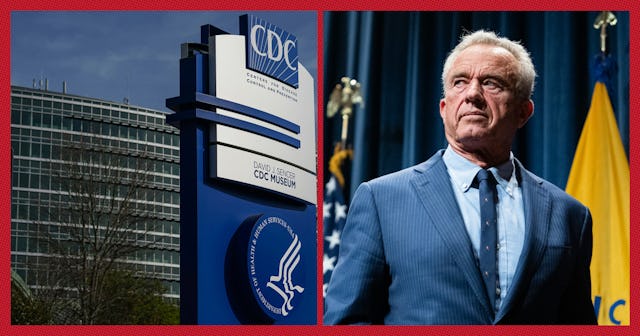The CDC Says Rising Autism Rate Reflects Better Diagnoses & Higher Awareness — RFK Disagrees
The HHS Secretary Kennedy blames “environmental toxins” and cited studies dating back to the 1950s.

On April 15, the Centers for Disease Control and Prevention (CDC) released its findings on the prevalence of autism in the US in children between the ages of 4 and 8. Data was drawn from a monitoring network of 16 sites throughout the US and Puerto Rico. Among 8 year olds in 2022, autism spectrum disorder (ASD) prevalence was 32.2 per 1,000 children — one in 31 or approximately 3% —ranging from 9.7 in one of the two sites in Texas (Laredo) to 53.1 in California. This is up from one in 36 children per data from 2020.
The agency found that autism was more commonly diagnosed in boys and was more prevalent among Black, Asian-Pacific Islander, and Hispanic children than white. Generally speaking, an autism diagnosis was not correlated with median household income. The study also notes that there were more children today diagnosed with autism before they were 4 than those born in 2014 and, as such, they posit, it’s most likely more common and earlier screening for ASD that explains these increased numbers.
This hypothesis is bolstered by the fact that the two states with the highest rates of autism among 8 year olds, California and Pennsylvania, have both implemented programs that make access to diagnostic tools more readily available to families regardless of income. In 2017, Puerto Rico Title V Children with Special Health Care Needs Program and the Puerto Rico “Learn the Signs” campaign redoubled efforts to diagnose autism. As such, PR has the second highest rates of ADS among 4 year olds, who would have been born after this initiative, than 8 year olds, born before those initiatives.
“Increased identification of autism, particularly among very young children and previously underidentified groups, underscores the increased demand and ongoing need for enhanced planning to provide equitable diagnostic, treatment, and support services for all children with ASD,” the study writes. “The substantial variability in ASD identification across sites suggests opportunities to identify and implement successful strategies and practices in communities to ensure all children with ASD reach their potential.”
But on Wednesday, Robert Kennedy held a press conference — his first since being confirmed as Health and Human Services Secretary — flatly denying the conclusions of the CDC.
“One of the things that I think that we need to move away from today is this ideology that the autism diagnosis, autism prevalence increase, the relentless increases, are simply artifacts of better diagnoses, better recognition or changing diagnostic criteria,” he said.
“This epidemic denial has become a feature in the mainstream media,” he continued, “and it’s based on an industry canard and obviously there are people who don’t want us to look at environmental exposures.”
He went on to highlight studies from between the 1950s to 1980s. It bears mentioning that until 1971, ASD was so poorly understood that it was deemed a form of schizophrenia. Prior to the ’60s and ’70s, autism was often blamed on “refrigerator mothers” who did not show sufficient love and affection to their children.
Several times throughout the conference, Kennedy reiterated his belief that there was a “canard of epidemic denial” among experts and media, referred to autism as a preventable disease (it is not a disease), and insisted that an “environmental toxin” is responsible for the rise in autism diagnoses.
“Somebody made a profit by putting that environmental toxin into our air, our water, our medicines, our food, and it’s their benefit to normalize it ... [that autism] has always been here.”
While he acquiesced, in part, to the leading theory that having autism is genetic, he roundly denied genes in and of themselves cause autism but rather make one susceptible to it. He vowed to conduct government studies — even as funding for scientific research, including through the National Institutes of Health and Environmental Protection Agency, are being cut across the board — to identify such toxins and “pressure” those responsible to remove it.
While Kennedy fell short of explicitly blaming vaccines for increased rates of autism during the press conference, and indeed bristles at being categorized as "anti-vax," he has expressed anti-vaccination sentiment — including calling into question their efficacy and safety and linking vaccines to autism — for more than a decade.
Since becoming HHS secretary, he has tepidly acknowledged the benefits of vaccination against the measles while generally falling short of recommending the MMR vaccine across the board, contrary to guidelines established by governing medical bodies. He has emphatically expressed the belief that vaccination is inherently riskier than the general population believes and should be a personal, parental choice.